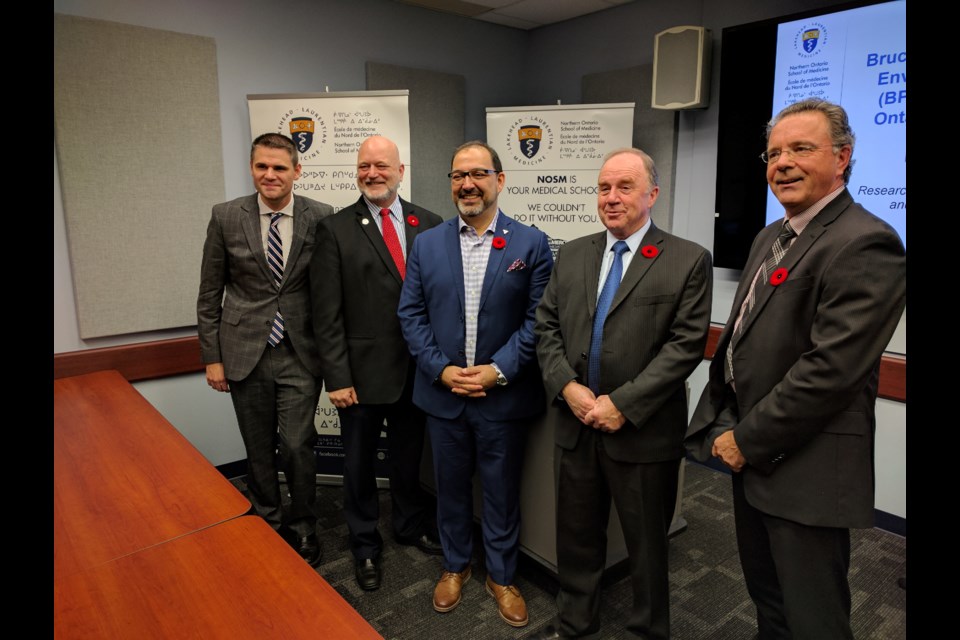Bruce Power has announced it is giving the Northern Ontario School of Medicine $5 million in funding to conduct health research in Northern Ontario, specifically in relation to radiation and the environment.
The funding will allow the medical school to establish the Bruce Power Centre for Health and Environmental Research and will lead to continuing research in the impact of low-dose radiation on health; the environmental impacts of radiation and how they impact health; the effects of radiation and diagnostic imaging on fetal programming; the effect of radiation on specific species of fish; and the impact of radiation on Indigenous communities.
Frank Saunders, vice-president of nuclear oversight and regulatory affairs for Bruce Power, said the company, which generates 30 per cent of Ontario's electricity through nuclear power, works frequently with Canadian universities on a variety of research projects.
Saunders said the collaborations help ease the public's skepticism about nuclear power and its environmental and health impacts.
“Everyone usually thinks big business is up to something nefarious,” he said. “That's just a natural inclination people have. The more you can do to put (research) out in the open the easier it is for people to accept that it's real data and real information.”
Because Bruce Power draws water to cool its nuclear reactors from Lake Huron, Saunders said it's important to understand the impact that has on the environment.
The research from the Northern Ontario School of Medicine will also provide a greater understanding of the health impacts of low doses of radiation, which is more poorly understood than the effect of high doses.
“Assumptions are made based on what we know about high doses,” he said.
The new funding will allow Dr. Doug Boreham, the Bruce Power chair in radiation and health at the medical school and manager of integration at Bruce Power, to continue that research role, which he started in late 2012, for an additional five years.
Boreham said he and his team have already learned that low doses of radiation can have positive effects.
“We've given cancer cells low levels of radiation and showed that low-dose radiation actually eliminates cancer cells,” he said.
Dr. David Marsh, the Northern Ontario School of Medicine's associate dean, said Boreham's research fits right within the school's mandate.
Marsh said research into the relationship between health and the environment was a top priority when the medical school visited 50 northern communities to develop its strategy plan.
In addition to the new research funding, Bruce Power will also install an electric vehicle charging station on the Laurentian University campus, near the library.
Saunders said about 97 per cent of Ontario's energy production is clean, and one big area to reduce carbon emissions is in transportation.
He said he hopes a charging station on campus might encourage students or faculty to use electric vehicles for their commutes.
Join Sudbury.com+
- Messages
- Post a Listing
- Your Listings
- Your Profile
- Your Subscriptions
- Your Likes
- Your Business
- Support Local News
- Payment History
Sudbury.com+ members
Already a +member?
Not a +member?
Sign up for a Sudbury.com+ account for instant access to upcoming contests, local offers, auctions and so much more.
